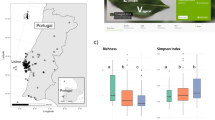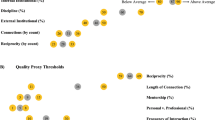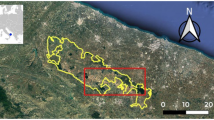Abstract
Background/Question/Methods
Citizen science projects engage individual volunteers or groups to observe, measure, and contribute data to scientific studies. CENS is building a collection of mobile phone and web-based tools to make the citizen scientist experience more engaging and flexible. CENS is an NSF-funded Information and Technology Center that employs graduate students from Computer Science and Electrical Engineering at UCLA to create open-source software that is environmentally and socially responsible. The overarching goal of the Networked Naturalist project is to enhance participatory learning experiences through citizen science campaigns and help transform the associated learning process. We are collaborating with national field campaigns, such Project BudBurst, and also with the National Park Service to increase participation and retention in citizen scientist campaigns through two main avenues afforded by the use of new technologies: (1) to offer new methods for data collection, primarily using mobile phones, through text, picture, and smart-phone applications, and (2) to provide immediate feedback and automated, engaging analysis of data for informal learning opportunities. We are working to create a robust data collection system to enhance citizen science by ensuring data quality and improving data submission, and to transform participation into an active learning, engaging experience.
Results/Conclusions
Our experience with volunteers for software testing at UCLA and at the National Park Service has indicated that using mobile phones is an efficient method for collecting environmental and location data and raises public awareness of environmental issues through attracting the attention of the mass media. Individual participation in the What’s Invasive! project by volunteer citizen scientists seems to have been limited by smartphone application availability (iPhone app is currently only available for Santa Monica), although methods for making observations based on text and picture messaging are also available. We have found that running short-term "campaigns" partnered with NPS officials and groups such as schools has been the most effective in not only education-related efforts but also in efficiently identifying and locating species and objects of interest using mobile phones.
Similar content being viewed by others
Article PDF
Author information
Authors and Affiliations
Rights and permissions
About this article
Cite this article
Graham, E. The Networked Naturalist: Mobile phone data collection for citizen science and education. Nat Prec (2010). https://doi.org/10.1038/npre.2010.5198.1
Received:
Accepted:
Published:
DOI: https://doi.org/10.1038/npre.2010.5198.1



